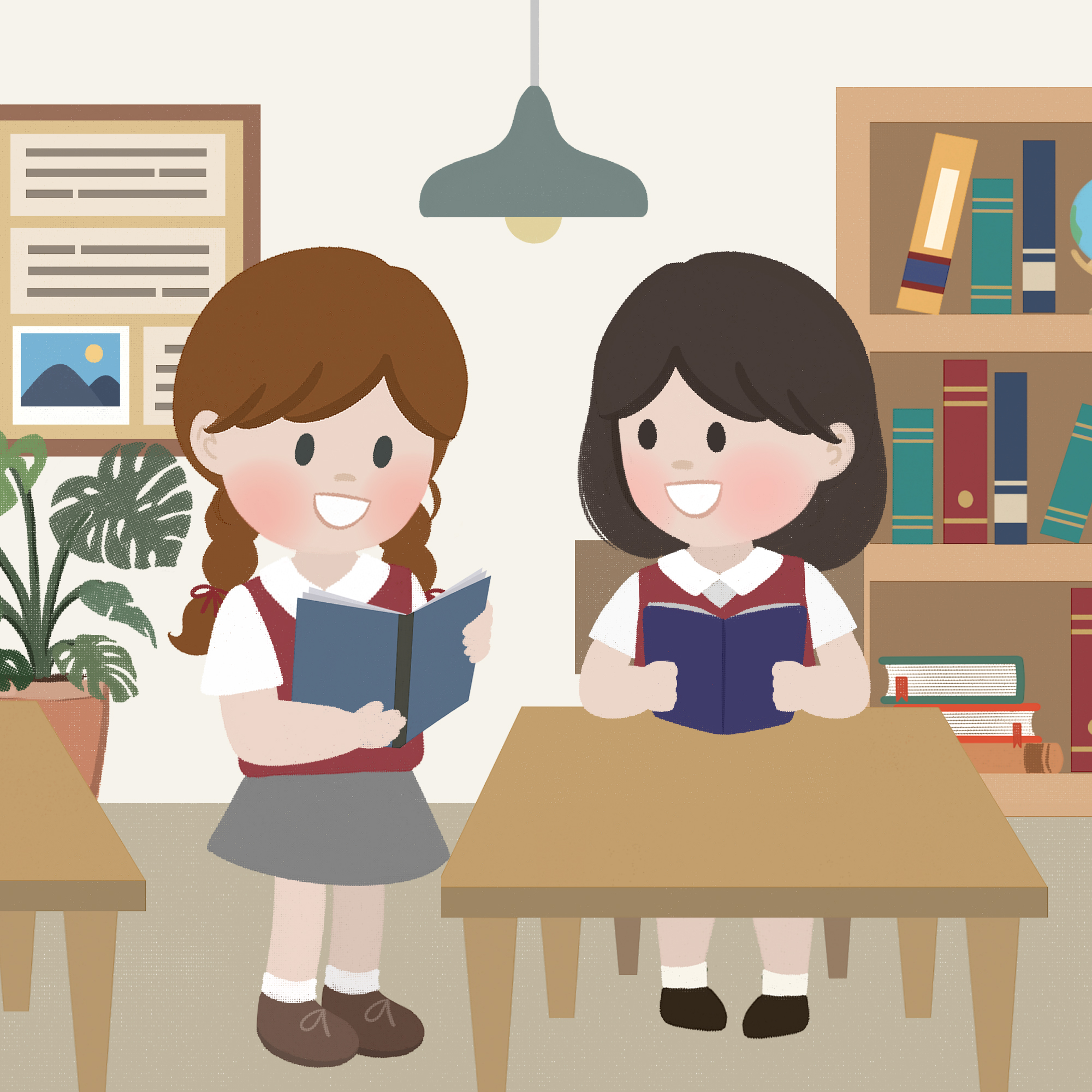Written by Richard James Rogers (Award-winning author of The Quick Guide to Classroom Management). Illustrated by Pop Sutthiya Lertyongphati.
The ability to read is possibly the most important skill that students should master whilst at school. It is so important, in fact, that a simple Google search of the phrase “The importance of reading for students” brings up hundreds of millions of hits (around 717 million at the time of writing this article, to be exact).

There are numerous benefits of reading: for adults and children alike. I could choose to spend the rest of this article describing those benefits, but I fear that I would be preaching to the converted. As teachers, we already know that reading is important. I hope you will permit me, however, to at least include my favourite quote about reading from one of my favourite actors:
For reading: there have been gazillions of people that have lived before all of us. There’s no new problem you could have–with your parents, with school, with a bully. There’s no new problem that someone hasn’t already had and written about it in a book.
Will Smith
So, we know that our students must learn to read. However, what’s equally important is that our students learn to love reading. And this is what I want to explore with you today: How do we get our students, or our children, to enjoy reading? How do we prevent reading from becoming a laborious, dull part of their schooling and instead turn it into to a relaxing and, dare I say it, exciting past-time?
Tip #1: Turn reading into a collaborative task (with a creative output)
Reading is all-to-often seen as a solitary activity, which is most unfortunate. Set up times, or clubs, where students can read to each other and perhaps generate some kind of creative output – perhaps building a model of what they’ve read (Design Technology), calculating and mapping the frequency of different words (Mathematics) or even creating the costumes the characters might be wearing (Textiles). When reading becomes an active process, students realize that there’s actually a lot of ‘juice’ one can squeeze from a book, or even a short segment of text.
Perhaps you could couple collaborative reading with a technological task too – such as creating a Minecraft landscape of the setting for the story, or even setting up a Google Site online journal of learning.
The possibilities for collaboration in reading, coupled with creative outputs, really are limited only by one’s imagination. In fact, you may wish to ‘crowdsource’ ideas from the children themselves, perhaps by using a worksheet/prompt like the one below:

If you like the above tool, then you can download it as a pdf here.
#2: Host reading and reading-related competitions and events
Some ideas to consider are:
- Celebrate World Book Day by allowing students to come into school dressed as their favourite book characters. Perhaps offer special prizes for the best costumes, or even run a fashion show on the day. Award plus points/merits/whatever your school’s ‘reward tokens’ are for students who bring in their favourite books on the day.
- Invite a local author to come into school to talk about their work. As an author myself, I know for a fact that the author will love the opportunity to gain some exposure, and if you ask politely you may even get some free, signed books for school out of it.
- Run book clubs or events by genre – specialization can generate more interest in reading. Have a day for self-help books, one for non-fiction, one for animals – anything that the students are interested in.
- Take the students to a reading-related place, such as a local library or actual location from a book. Students will often be unaware that these places exist in the first place, and their discovery may set in-motion some profound changes that result in a love of reading. My primary school took me to my local library as child, for example, and that place became my study-hangout in my teens. I just loved being surrounded by all of those books. It’s a feeling that’s very unique.

#3: Read with your students, and to your students, with passion
Get involved in all of the activities listed above. Join the collaboration groups, for example, even if only for 10 minutes at a time. Read topical news articles, extracts from books, quotes of the day or any materials that provide positive messages for students. Have a sign outside your door that tells students what you are reading at that time.
Bottom line – get stuck in yourself! Never underestimate the subliminal messages that students pick up on when they see us model positive behaviors.
Further reading (no pun intended):
We welcome you to join the Richard James Rogers online community! Join us on Facebook and Twitter for regular updates, giveaways of Richard’s books, special offers, upcoming events and news.





Really it’s helpful for the teachers
Thank you very much, Shirin! I’m glad the tips are useful. Please do feel free to share this blog post with your colleagues if you feel it would help them too.
Thank you, Shirin.
It’s interesting.
Could read and write stories a good way to learn English?
What do you think about ir?
What ideas, authors, books, etc. Do you recommend me?
Great ideas, Alexis. Stories are great for developing children’s creative juices.
You’ve asked me to recommend books, but I’m not sure what the purpose of those books are for you. If you want me to recommend children’s story books, then anything by Roald Dahl is very good. My Year 7 students really like the Diary of a Wimpy Kid series too.